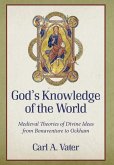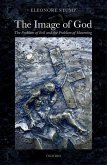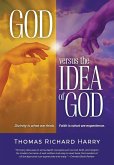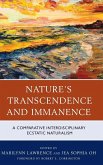"Aquinas' first proof for God's existence is usually interpreted as a metaphysical argument immune to any objections coming from empirical science. Connections to Aquinas' own historical understanding of physics and cosmology are ignored or downplayed. Nature and Nature's God proposes a natural philosophical interpretation of Aquinas' argument more sensitive to the broader context of Aquinas' work and yielding a more historically accurate account of the argument. Paradoxically, the book also shows that, on such an interpretation, Aquinas' argument is not only consistent with modern science, but actually confirmed by the history of science, from classical mechanics through 19th century thermodynamics to contemporary cosmology. The first part of the book considers Aquinas' argument in its historical context, exploring the key principles that everything in motion is moved by something else and that an infinite regress of causes is impossible. The structure of the First Way is analyzed and the argument is connected both with Aquinas' Third Way-a new interpretation of which is also proposed-and Aquinas' second proof from motion in the Summa contra Gentiles. To complete the account of what natural philosophy-prior to metaphysics-can demonstrate about God, a chapter on Aquinas' teleological argument (the Fifth Way) is also included. The second part of the book tracks the history of modern science from Copernicus to today, showing how Aquinas' argument fared at each major turn. The first chapter shows how Newton's understanding of inertia and conservation of momentum supports the idea that motion cannot continue forever without God's causality, and integrates a modern understanding of inertia and gravity with the principles of Thomistic natural philosophy. The second chapter considers the first and second laws of thermodynamics, showing how they too support Aquinas' contention that motion cannot continue forever without God's causality. This chapter also discusses statistical mechanics and contemporary cosmology, demonstrating that science continues to support Aquinas' unmoved mover argument. The final chapter turns to modern biology as well as cosmological fine-tuning to show that modern science also continues to support Aquinas' teleological argument. The result is not only a satisfying defense of Aquinas' natural philosophical proofs for God's existence, but a primer on the broader project of integrating Thomistic natural philosophy with modern science"--
Hinweis: Dieser Artikel kann nur an eine deutsche Lieferadresse ausgeliefert werden.
Hinweis: Dieser Artikel kann nur an eine deutsche Lieferadresse ausgeliefert werden.








